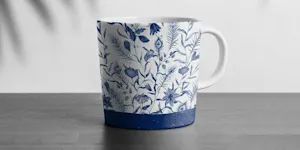What Makes This Word Tick
"Whilom" is like an old friend from a medieval tale, quietly lingering in the shadows of the English language. It means "formerly" or "once upon a time," invoking a sense of nostalgia for days gone by. This word might not appear in everyday chit-chat, but it whispers ancient stories to those who listen closely.
If Whilom Were a Person…
If "whilom" were a person, it might be a retired history professor, set in their ways and fond of regaling listeners with tales of the past. This character might enjoy sipping scotch by a crackling fire, slipping into reverie about the 'good old days' while seated in a leather armchair.
How This Word Has Changed Over Time
Once a regular in Middle English, "whilom" has become a linguistic antique over the centuries. While it's largely fallen out of everyday speech, it still pops up now and then in literary works looking to add a splash of antiquated charm. Its use today mostly signals an embrace of language's rich history.
Old Sayings and Proverbs That Use Whilom
Though you won't find "whilom" in the proverbs recited at the Sunday dinner table, the spirit of this word can be seen in sayings like "in times past" or "back in the day." These expressions capture the wistful glance back at former times that "whilom" so elegantly conveys.
Surprising Facts About Whilom
One surprise about "whilom" is its staying power in certain circles, especially those who relish classical literature. It's also a darling of crossword puzzle enthusiasts and Scrabble players who delight in pulling out this dusty gem from their linguistic treasure chests.
Out and About With This Word
Keep your eyes peeled in historical novels or perhaps as a playful nod to the past in a footnote or two. You might spot "whilom" in period dramas, lurking around the edges like a forgotten actor visiting a modern-day film set, curious and a bit bemused.
Pop Culture Moments Where Whilom Was Used
While "whilom" may not have headlined in pop culture moments, its essence is alive in retro themes and nostalgic media that revel in the romance of yesteryears. Think of it as the equivalent of those sepia-toned filters that bring a wistful smile to our faces.
The Word in Literature
Authors seeking to weave an old-world feel into their narrative might sprinkle "whilom" within their prose as a charming anachronism. You might encounter it in fantasy novels or any story that values linguistic artistry, aiming to transport readers to a bygone era.
Moments in History with Whilom
The very spirit of "whilom" casts a long shadow over historical accounts, perfectly describing epochs when the world was a very different place. Imagine its use among medieval scribes describing the reign of a long-passed king or in the chronicles of bygone civilizations.
This Word Around the World
While "whilom" is uniquely English, many languages embrace similar terms for "formerly" or "once." French uses "autrefois," while Germans opt for "ehemals." Each carries a gentle yearning, illustrating how shared human experiences transcend language barriers.
Where Does It Come From?
The roots of "whilom" stretch back to Old English, with "hwīlum" meaning "at times" or "formerly." It echoes down the hallways of history, a reminder of English's Germanic origins and its evolving nature over time.
How People Misuse This Word
Though rare, confusion might arise with younger generations, who might mistake "whilom" for a trendy or techie term. Its archaic charm can lead to misunderstandings if not properly contextualized within its literary or historical setting.
Words It’s Often Confused With
While: Frequently confused due to phonetic similarity; "while" indicates time but lacks the historical context.
Whom: A mix-up of sight rather than meaning, as they're structurally close but vastly different in usage.
Additional Synonyms and Antonyms
Synonyms for "whilom" include "erstwhile," "once," and "formerly." Antonyms might be "currently," "presently," or "now," each grounded firmly in the here-and-now, rather than the misty past.
Want to Try It Out in a Sentence?
Trying to conjure its charm can be a fun trip down linguistic lane. For example: "The whilom delights of summer warmed her heart even in the chill of winter." Give it a whirl in your writing—it's a lovely way to bring a touch of the past into your modern musings.
















